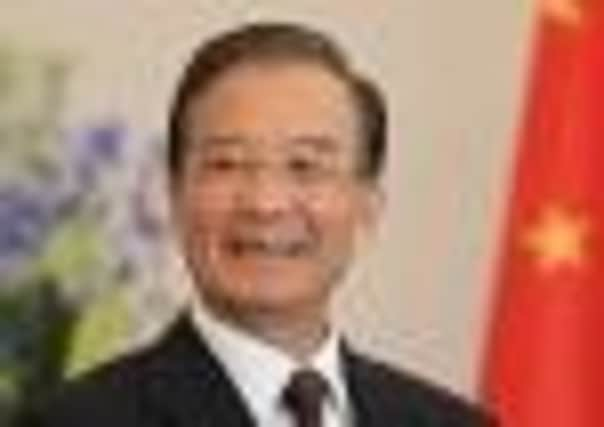Rare glimpse into premier’s past


The remarks have been interpreted by some as a warning to hardline factions within the Communist party against repeating previous mistakes as the country prepares for a change of leadership in 2013.
China’s leaders rarely talk about their pasts. But the premier opened up in comments to students and teachers in a speech at Nankai High School, saying that his father, a teacher, was dismissed and sent to tend pigs.
Advertisement
Hide AdAdvertisement
Hide Ad“After I went to high school and university, my family suffered constant attacks in the successive political campaigns,” Mr Wen told the audience at the school – his alma mater – in the city of Tianjin near Beijing.
Mr Wen, 69, has stood out among China’s ruling Communist Party leaders as the most persistent advocate of measured political relaxation under party control, and his comments to the students perhaps help explain why.
Mr Wen comes from a family of teachers, and during Mao Zedong’s era of fervent Communism, the party attacked and demoted citizens deemed to have bad “class” backgrounds or suspect pasts. Mr Wen’s father and grandfather were among the victims, he said.
“In 1960, my father was also investigated for so-called historical problems. He could no longer teach and was sent to work on a farm on the outskirts of the city to tend pigs, and then later worked in a library,” Mr Wen told the students when he visited last week, according to a transcript published yesterday.
Surviving files about Mr Wen’s grandfather from the school he taught at showed he constantly had to write “self-criticisms” before he died in 1960, Mr Wen said. He added: “I was the one who carried him on my back to the hospital.”
His grandfather’s files “are filled with one self-criticism after another, written in small, neat characters”, he said.
Mr Wen retires as premier in early 2013 as part of a generational leadership shift that begins late next year.
As he prepares to stand down, he has made a habit of calling much more forthrightly for political reform than more cautious colleauges in the Communist Party elite. But his proposals have remained vague, and Mr Wen lacks the backing from other leaders needed to act on such ideas.
Advertisement
Hide AdAdvertisement
Hide AdFor skeptics, Mr Wen’s hazy words are vanity, burnishing his reputation without venturing to secure real change. More sympathetic observers have said he is defending a moderate agenda that could gain ground after the leadership transition.
During his speech he said: “I come from the people, and had a hard childhood, so I feel sympathy for all poor people and have given all that I can for the sake of their happiness.
“My childhood was spent in war and hardship, and the poverty, turmoil and famine left an ineradicable imprint on my young soul.”
China has made huge economic strides, he said, but remains beset by imbalances, inequality and corruption. He added: “Income distribution is unfair, and in some areas social conflicts are very sharp, with mass incidents occurring.”
“Mass incidents” is the government’s euphemism for protests, demonstrations and strikes.
“If a government ignores the public and people’s well-being, it ignores its foundations,” said Mr Wen. “Fairness and justice are the pillars of society, and if they are lost, then the great house of society will collapse.”